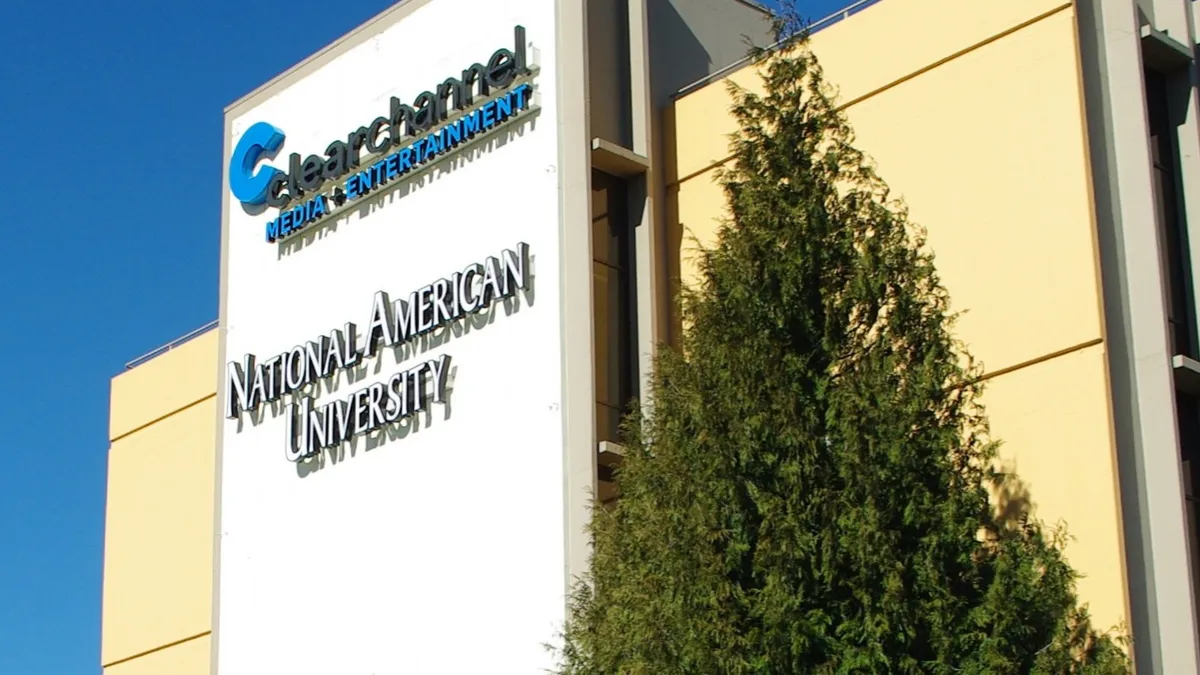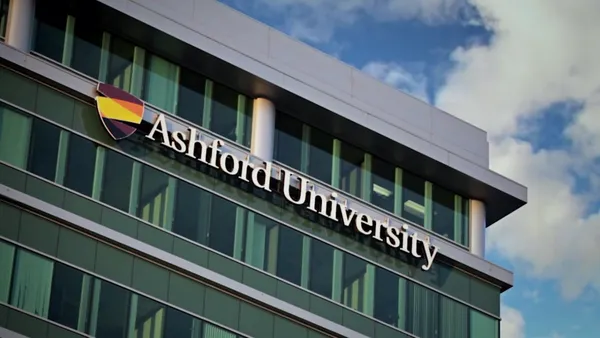Dive Brief:
- Dlorah, the subsidiary of National American University Holdings that runs the for-profit National American University, earlier this month received an $8.5 million loan from the Center for Excellence in Higher Education (CEHE), which runs a handful of college chains, according to SEC filings.
- The one-year loan will provide the cash needed to secure a letter of credit required by the U.S. Department of Education, as well as to discharge a judgment lien on Dlorah-owned real estate.
- National American said it received a letter in March from the Ed Department saying it didn't meet the financial responsibility standards for Title IV eligibility and requiring the college to post a letter of credit for as much as 50% of its Title IV awards in order to remain eligible.
Dive Insight:
National American said it asked the Ed Department to reconsider the amount of Title IV awards it would need to back with a letter of credit. The department initially asked for a letter of credit for either 50% ($36.7 million) or 15% ($11 million) of its Title IV awards, with the latter securing only provisional certification.
The appeal to the department resulted in two more options: posting a letter of credit for 10% of its Title IV awards ($7.3 million) or going on Heightened Cash Monitoring 2, with the department withholding a percentage of each HCM2 Title IV payment until the amount reached $7.3 million.
National American chose the first option. It also paid a $250,000 nonrefundable loan origination fee and CEHE's attorney's fees.
The Ed Department plans to review National American's fiscal year 2019 financials to determine if the additional 5% letter of credit amount — the originally minimum — is needed. It amounts to $3.7 million.
NAU CEO Ronald Shape responded to an email request from Education Dive but said he could not comment on the news.
National American's cash position has tightened, with it reporting $425,000 in cash and cash equivalents and a working capital deficiency of $10 million for the quarter ended Feb. 28. That's compared to $4.6 million in cash and $1.3 million in working capital a year earlier.
In its latest earnings report, National American again indicated "substantial doubt" as to its ability to survive the next 12 months. That concern comes as the company drops its physical campuses and restructures to operate solely online.
CEHE's loan could keep National American afloat, but that college operator has its own concerns. Earlier this month, CEHE's accreditor moved to continue sanctions that include stopping enrollment in nearly a dozen programs until it improves student outcomes.
The Accrediting Commission of Career Schools and Colleges (ACCSC) required CEHE to provide outcomes information for about 30 other programs, share details on the teach-out status of its discontinued programs, and provide verification for some marketing claims.
However, ACCSC suggested CEHE has "begun the process of candid self-evaluation and is working to develop realistic solutions." CEHE has also been trying to get the Ed Department to recognize its conversion from a for-profit to a nonprofit; CEHE's related lawsuit was dismissed at the agreement of both parties in December.
The arrangement between CEHE and National American comes as for-profit college operators seek to change their business models in light of heightened regulation and an uncertain path forward.
Some are having more success than others. Zovio, formerly Bridgepoint Education, has begun its transition, attempting to spin off its Ashford University as a nonprofit college while it picks up services such as a coding boot camp, a tutoring platform and possibly an OPM.













